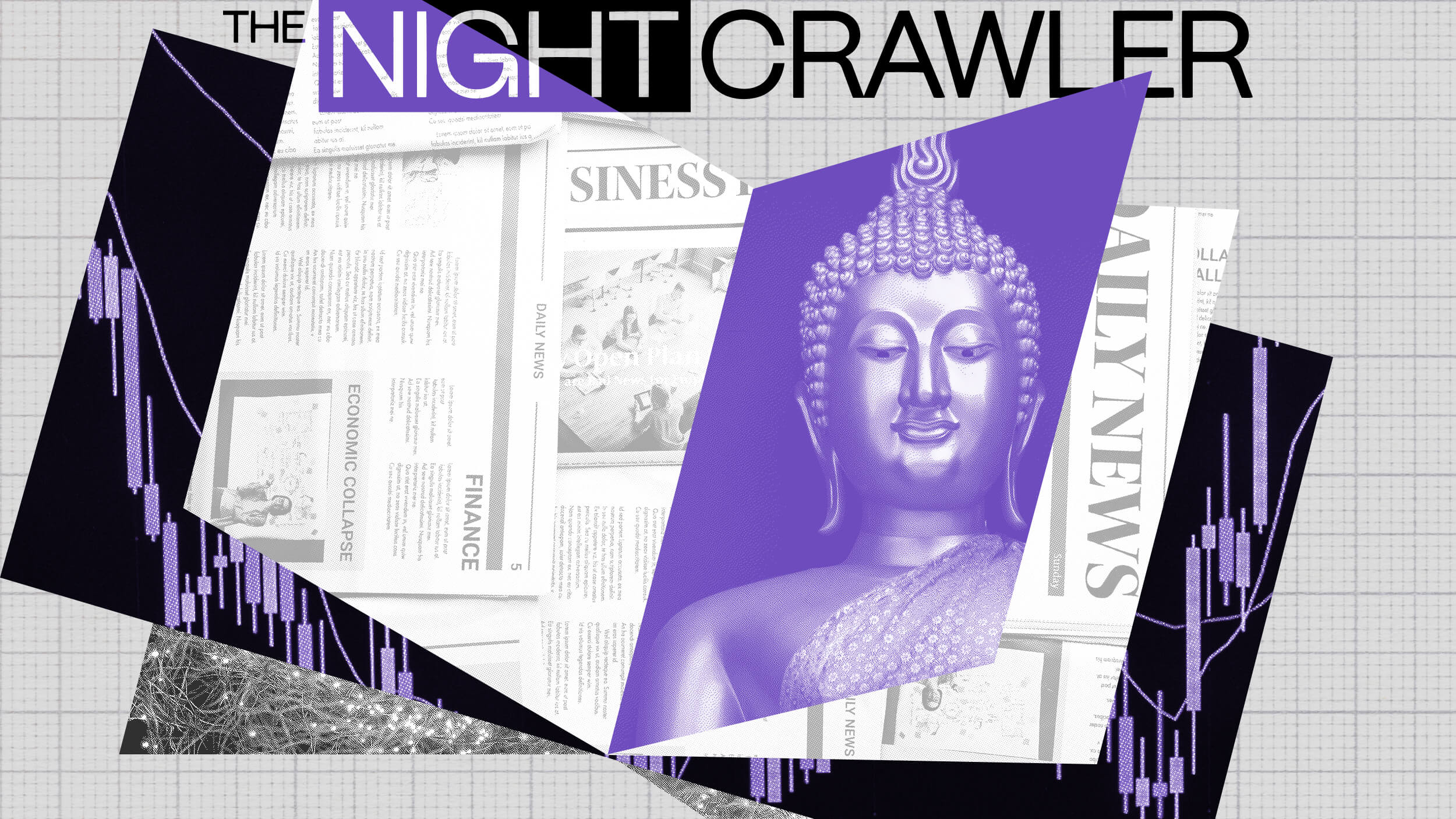Justin Frankel is a computer programmer best known for his work on the Winamp MP3 player (which was sold to AOL in 1999) and the gnutella peer-to-peer file-sharing network, which[…]
Sign up for the Smarter Faster newsletter
A weekly newsletter featuring the biggest ideas from the smartest people
In the era before iTunes, Frankel created one of the first MP3 players. He says that Apple’s product has “dumbed down” music sharing software.
Question: Why did you develop Winamp?
rn
rnJustin Frankel: Well, when I was in college, I guess that would rnhave been 1996, or 1997, I found online some places where you could rndownload music files that were pretty reasonable quality for how big rnthey were—and this was something I played with before like in high rnschool and never got really... never got that whole sort of CD quality rnsound out of a computer before. But when I found these, it was pretty rninteresting, and so I started playing around with it. And one of my rnfriends in college at the time started making a Mac MP3 player, and on rnWindows there were a couple pieces of software available, but they were rnkind of limited; they didn’t really a good experience when you were rnlistening to music with them. It was sort of very functional in that, rn"Hey, it’s playing it back," but there was very little of the sort rnenvironment that actually made listening to music on a computer rndifferent from listening to it somewhere else.
rn
rnSo, things like you now, showing visualization, being able to seek rnrandomly, being able to build play lists. All of this sort of stuff rnthat’s very commonplace in music-playing software now. So, my friend rnstarted doing a Mac version of this software called MacAmp, and I rnhaven’t really done much programming for Windows and Windows 95 had beenrn out and it was starting to be used by a lot of people, so I figured, rn"Hey, this would be a good way to learn how to program Windows rnapplication software." And so I made Winamp.
rn
rnQuestion: What was it like going from being an unknown coder to a rnfamous one?
rn
rnJustin Frankel: Well it was pretty gradual. There was an IRC rnchannel that I was hanging out on and had friends on. And these were rnpeople all over the world that would just hang out and talk about randomrn things. I guess kind of how many online communities are now. But, and rnso, you know, I posted early versions and people would play with them rnand go, "Hey, this is good. And it should do this, it should do that." rn And so this gradual thing of people starting to use it and giving rnfeedback. And as that happened, you get like, people get excited by it rnand they tell their friends and it grows in its own way that way. Which rnis very exciting, but it kind of happens over a long period of time, so rnas time goes on and each day isn’t really that much bigger than the rnprevious. So you really don’t notice it that much.
rn
rnQuestion: What do you think of iTunes?
rn
rniTunes probably started out very similar to Winamp other than some rnobvious differences. It was acquired from another company. But I thinkrn since then, it’s probably been... it’s been designed, a.) by people whorn actually weren’t the programmers on it. So, you’d have people making rndecisions who don't even know how those things are decided you have to rnbe implemented, which is often a mistake. And then also I think it’s rnbeen very dumbed down, like when working on Winamp, we always tried to rnmake things straightforward enough so that someone who wasn’t very rntechnical could use it and not be confused, but also exposed tons of rnpower so that if someone wanted to just completely customize it to be rnexactly their own, and change the behavior to be what they expected, rnthey could do that. Whereas, iTunes is very much... you fit into the rniTunes mold. That’s just how it works.
Recorded on June 21, 2010
Interviewed by Jessica Liebman
rn
rnJustin Frankel: Well, when I was in college, I guess that would rnhave been 1996, or 1997, I found online some places where you could rndownload music files that were pretty reasonable quality for how big rnthey were—and this was something I played with before like in high rnschool and never got really... never got that whole sort of CD quality rnsound out of a computer before. But when I found these, it was pretty rninteresting, and so I started playing around with it. And one of my rnfriends in college at the time started making a Mac MP3 player, and on rnWindows there were a couple pieces of software available, but they were rnkind of limited; they didn’t really a good experience when you were rnlistening to music with them. It was sort of very functional in that, rn"Hey, it’s playing it back," but there was very little of the sort rnenvironment that actually made listening to music on a computer rndifferent from listening to it somewhere else.
rn
rnSo, things like you now, showing visualization, being able to seek rnrandomly, being able to build play lists. All of this sort of stuff rnthat’s very commonplace in music-playing software now. So, my friend rnstarted doing a Mac version of this software called MacAmp, and I rnhaven’t really done much programming for Windows and Windows 95 had beenrn out and it was starting to be used by a lot of people, so I figured, rn"Hey, this would be a good way to learn how to program Windows rnapplication software." And so I made Winamp.
rn
rnQuestion: What was it like going from being an unknown coder to a rnfamous one?
rn
rnJustin Frankel: Well it was pretty gradual. There was an IRC rnchannel that I was hanging out on and had friends on. And these were rnpeople all over the world that would just hang out and talk about randomrn things. I guess kind of how many online communities are now. But, and rnso, you know, I posted early versions and people would play with them rnand go, "Hey, this is good. And it should do this, it should do that." rn And so this gradual thing of people starting to use it and giving rnfeedback. And as that happened, you get like, people get excited by it rnand they tell their friends and it grows in its own way that way. Which rnis very exciting, but it kind of happens over a long period of time, so rnas time goes on and each day isn’t really that much bigger than the rnprevious. So you really don’t notice it that much.
rn
rnQuestion: What do you think of iTunes?
rn
rniTunes probably started out very similar to Winamp other than some rnobvious differences. It was acquired from another company. But I thinkrn since then, it’s probably been... it’s been designed, a.) by people whorn actually weren’t the programmers on it. So, you’d have people making rndecisions who don't even know how those things are decided you have to rnbe implemented, which is often a mistake. And then also I think it’s rnbeen very dumbed down, like when working on Winamp, we always tried to rnmake things straightforward enough so that someone who wasn’t very rntechnical could use it and not be confused, but also exposed tons of rnpower so that if someone wanted to just completely customize it to be rnexactly their own, and change the behavior to be what they expected, rnthey could do that. Whereas, iTunes is very much... you fit into the rniTunes mold. That’s just how it works.
Recorded on June 21, 2010
Interviewed by Jessica Liebman
▸
3 min
—
with





